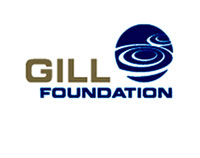
According to Eric Gutierrez, a creative director at DDB, ‘‘TurnOut’’ targeted voters who ‘‘might be open to a discussion about rights in the workplace.’’ Polls conducted by the Gill Foundation showed that, out of a wide range of LGBT issues, equal rights in the workplace was considered highly important; more than 80 percent of straight people felt that everyone should have such rights. These findings prompted DDB to center the campaign’s most prominent aspect, the television spots, on this issue. Rodger McFarlane, executive director of the Gill Foundation, told Business Wire, ‘‘Numerous studies, including our own, reveal that a majority of ‘straight’ people are appalled when they know that non-discrimination protections don’t exist for many lesbian, gay, bisexual and transgender citizens.’’ The campaign was also aimed at the 56 percent of Colorado voters who did not support gay issues.
The ‘‘TurnOut’’ television spots showed six real people dissatisfied about hiding their sexual orientation from coworkers. Filmed as minidocumentaries, the spots featured the employees coming out at work. Lisa Herrera, for example, ended five years of silence about her personal life by placing a picture of her girlfriend on her desk. Steve Calhoun, a prototype tester at Detroit’s Ford Motor Company, said his coworkers were not supportive when he came out. Each person also lived in a state that permitted employers to fire people for being gay, lesbian, bisexual, or transgender. Gill Foundation volunteers told the Rocky Mountain News that the biggest challenge for ‘‘TurnOut’’ was getting straight, like-minded voters, specifically those under the age of 35, to vote. Even though volunteers felt that they could make a bigger impact by talking to voters oneon-one, ‘‘TurnOut’’ allowed the Gill Foundation to make gay-rights issues visible inside voters’ homes.



